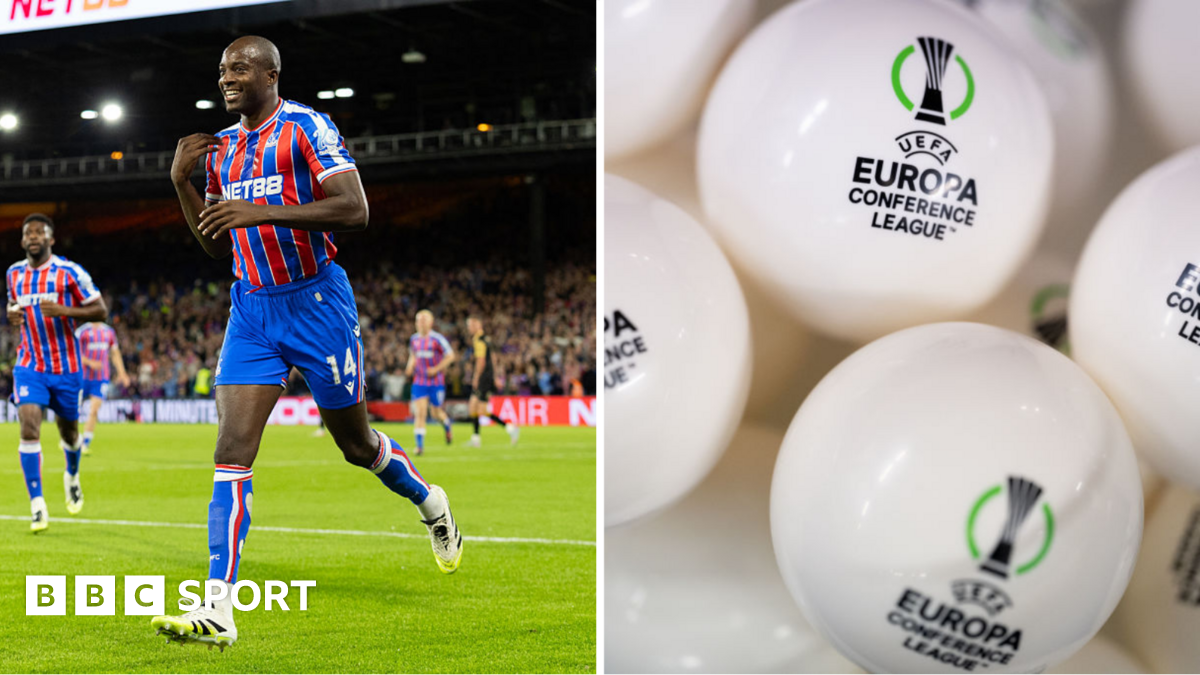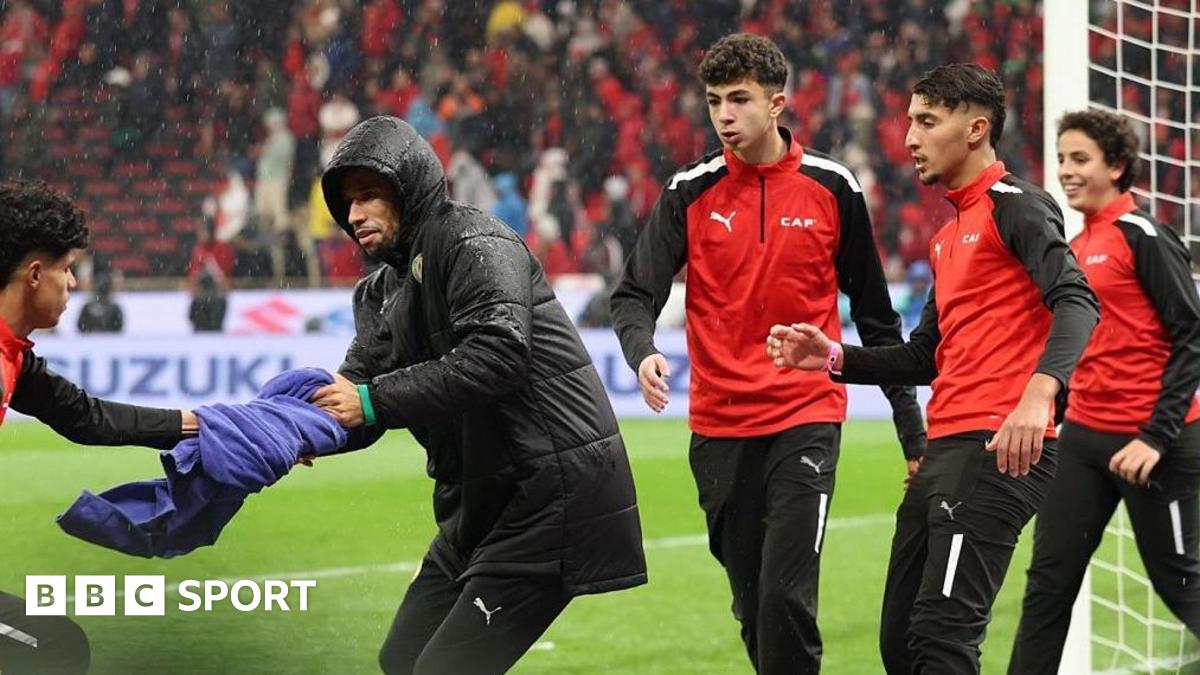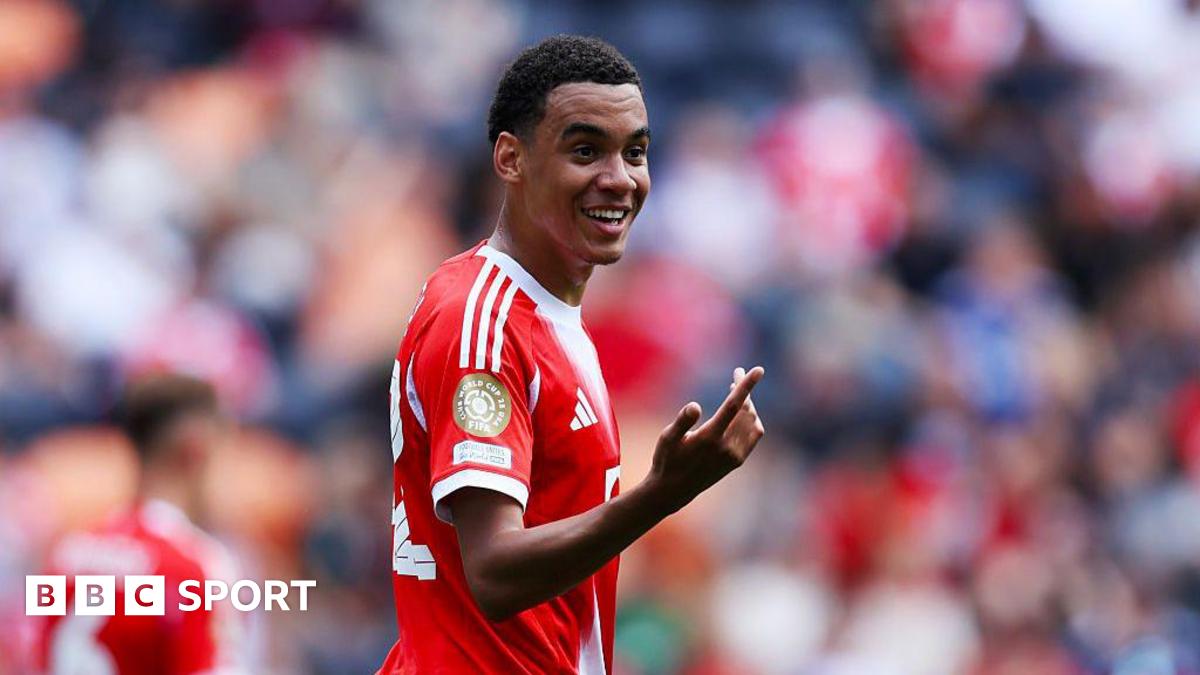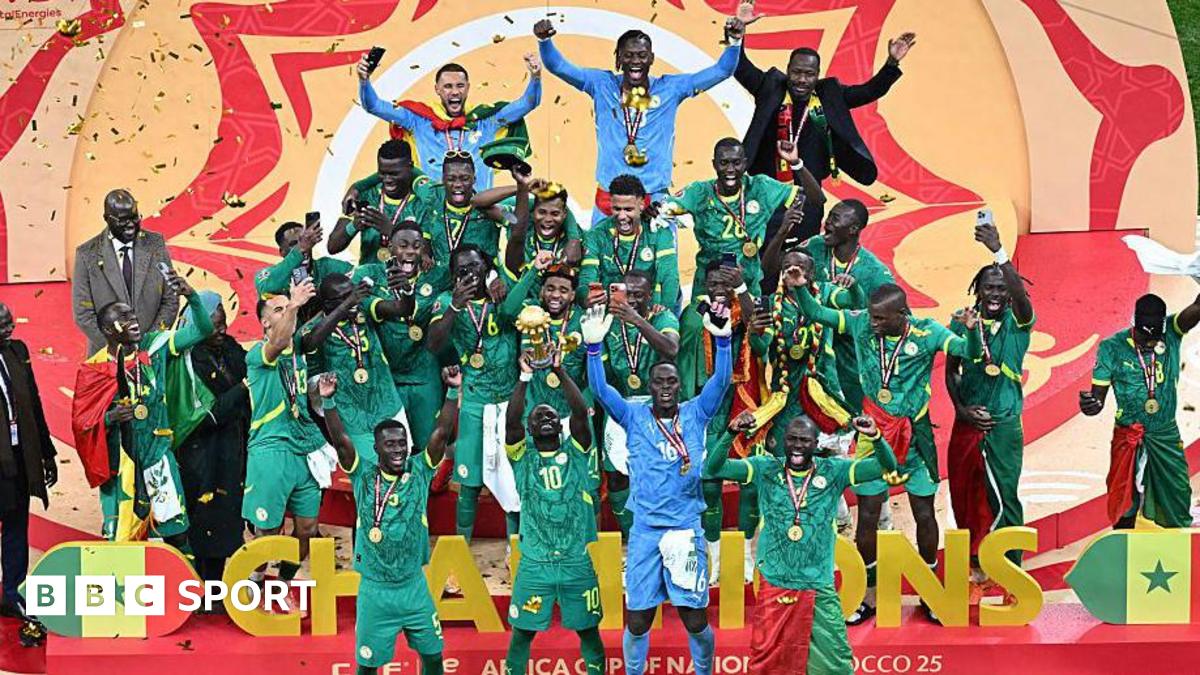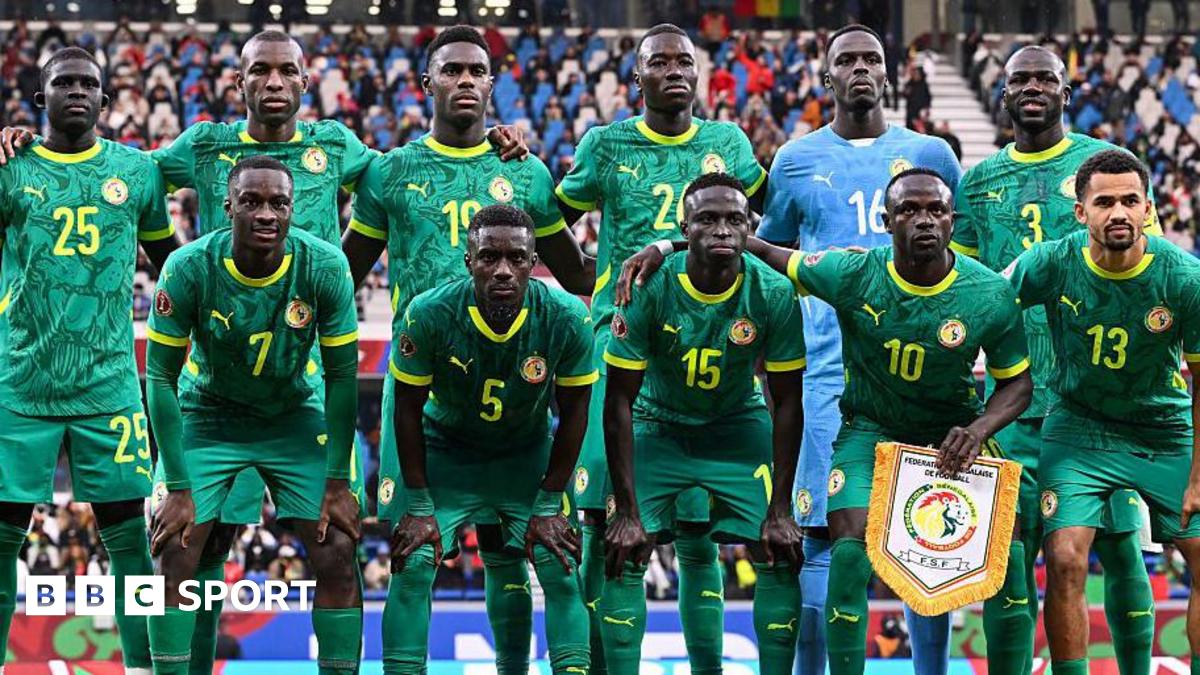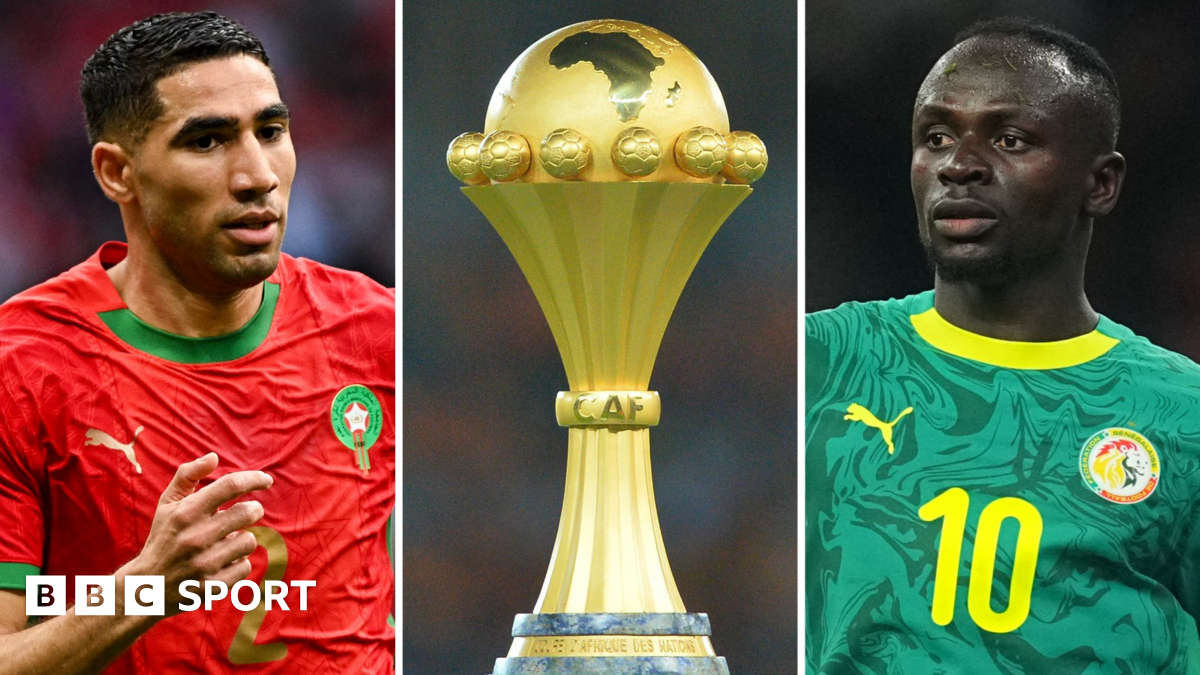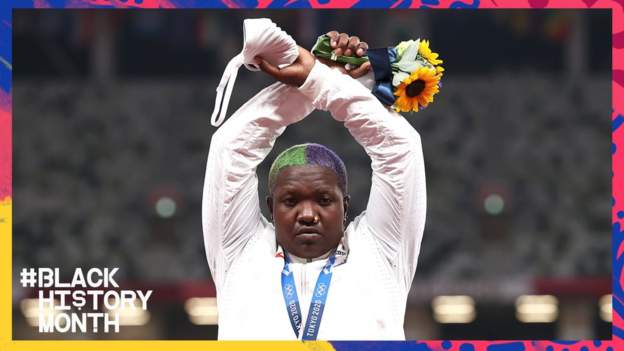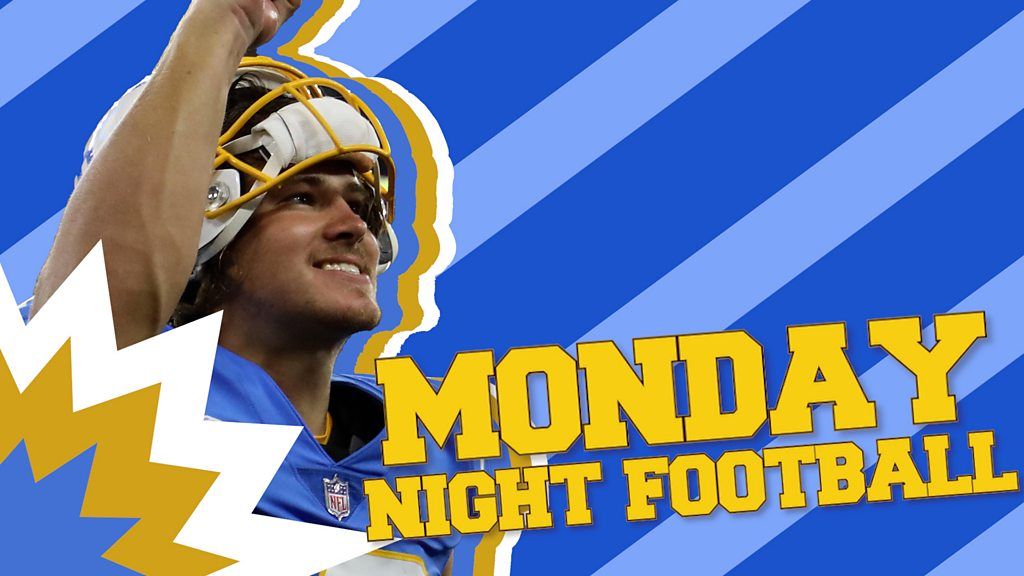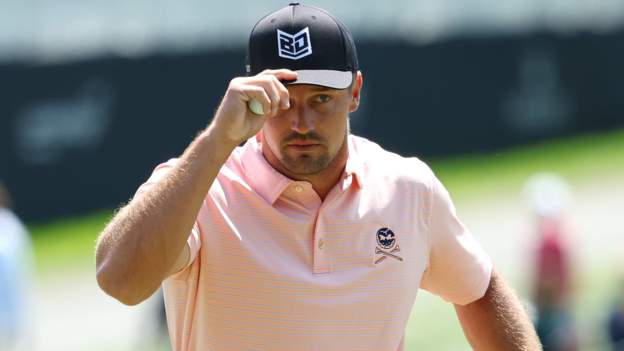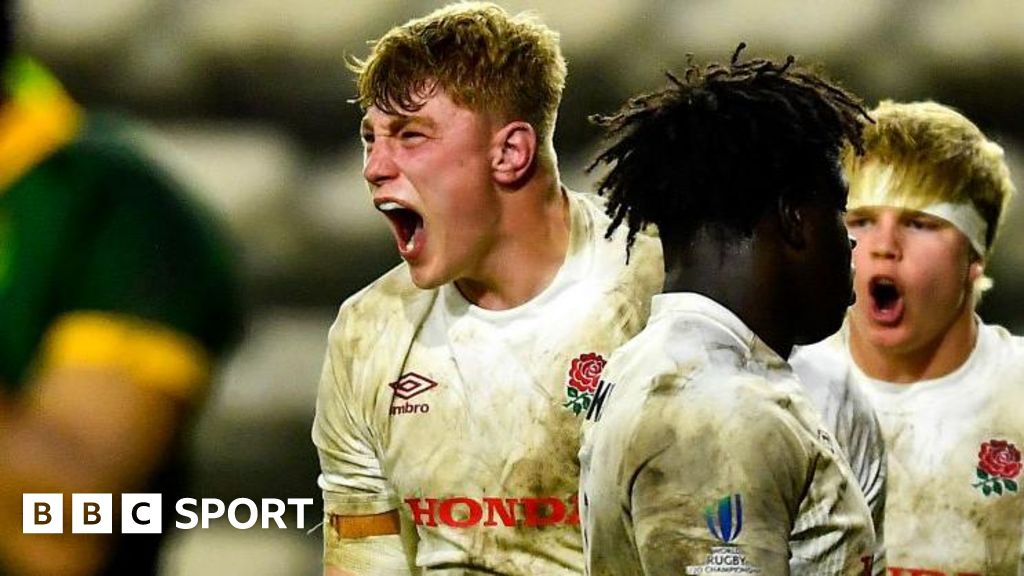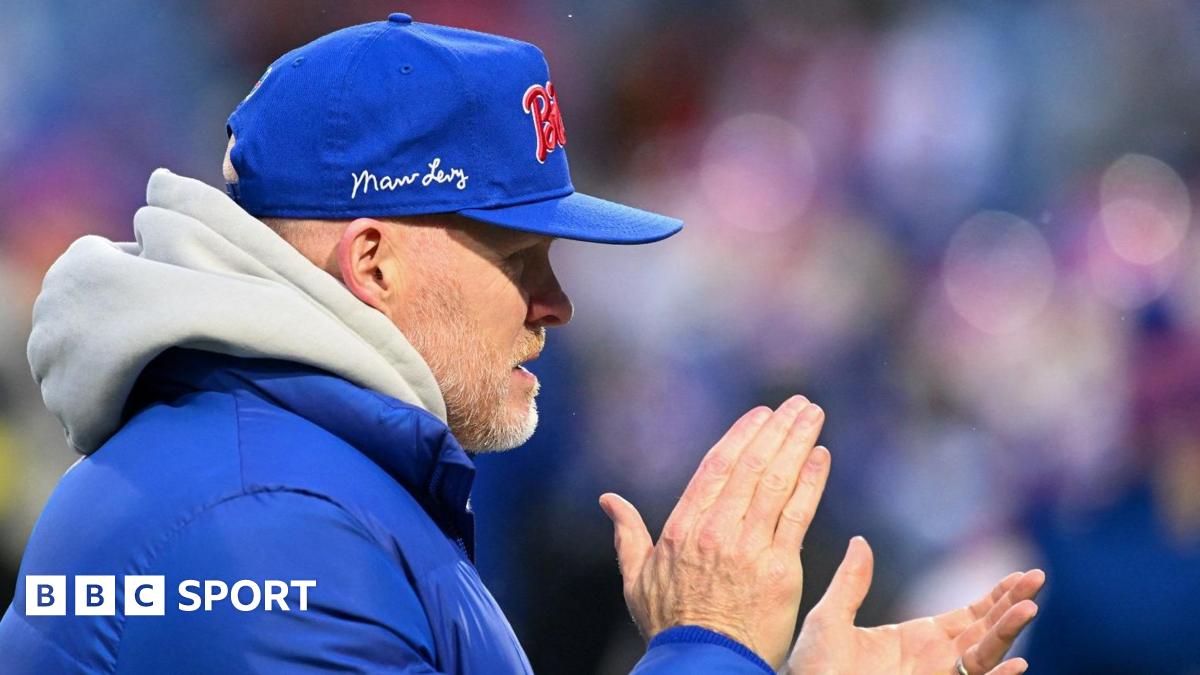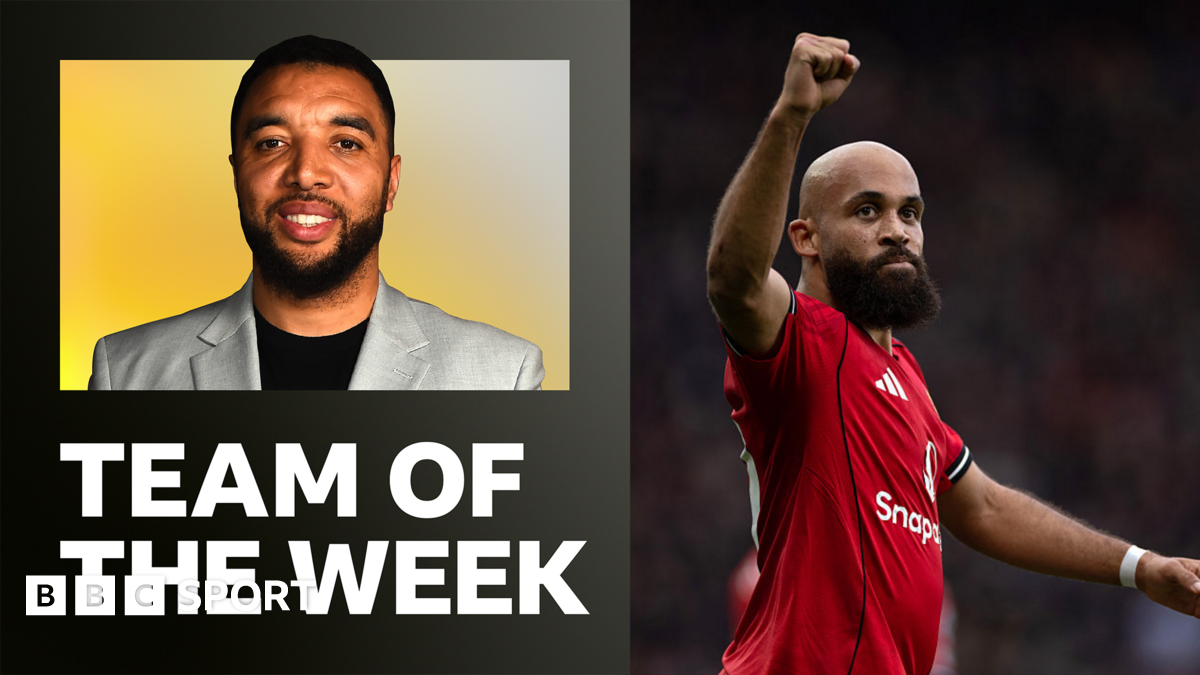Standing on the podium in Tokyo with an Olympic silver medal round her neck, Raven Saunders wanted to make a powerful statement.
She knew who she wanted to speak up for, discussing it with those closest to her – but wasn’t sure how. So she had to think quickly.
“It was in the moment I decided,” the shot putter, 25, tells BBC Sport from her home in the United States.
“We had already talked about what our demonstration was going to be, and I felt like it fitted perfectly.”
Saunders crossed her arms above her head, creating an X symbol that was seen around the world.
“It’s the intersection where all oppressed communities meet,” she says.
“Being a black, lesbian woman who deals with mental health, and knowing so many people who have disabilities, it only felt right for me.
“I’ve always been one to advocate for those whose voices weren’t heard. And growing up, if I’d had the chance to witness someone like myself, it would have given me much more comfort to really be me.”
‘I’d built up a persona of being mentally tough’
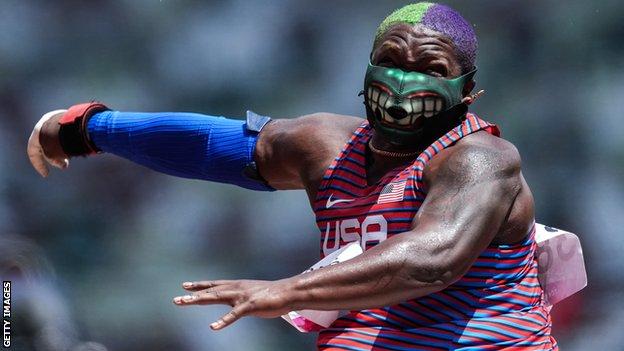
A quick look at Saunders’ TikTok – with a follower count of 150,000 and rising – shows she likes to have fun.
“When I was in the Olympic village, I wanted to be the life of it,” Saunders says.
“If you ask anyone from almost any country, they’ll tell you about the crazy girl with the split hair and the speaker that walked around the whole entire village, just dancing and bumping music.
“In the dining hall, in the weight room, in the street, on the bus – I was just trying to get everyone involved. It was so fun, and I’m like: ‘This is what I’m here for!'”
Just as prominent are Saunders’ posts about mental health – but getting to a point where she felt ready to open up about her struggles wasn’t easy.
And the shot-putter admits that her sporting success made things more difficult.
She says: “I was giving so much of myself because I felt like I owed it to everyone around me – to my coaches, my team-mates, my parents. But I lost myself in that, and stopped thinking about what I owed myself.
“Before I opened up, I battled myself. I felt shamed and scared, the unknowingness of what people may or may not think.
“I’d built up such a persona of being so strong and mentally tough, that I can take and handle anything and nothing affects me.
“That was who I perceived myself to be, and how I put myself out there to the world. So going from that to being like: ‘Well, I have these problems’ – I felt so vulnerable for two or three days.
“I almost slipped back, but just hearing people’s words of encouragement and how they could relate to that… I’m very thankful and blessed to have had that kind of reaction.”
‘I come back the next day, and the whole school knows’
Saunders’ willingness to be open also extends to talking about her sexuality, and the traumatic way she was forced to come out to her classmates when she was still at lower school in Charleston, South Carolina.
“I got to fifth grade and I had the biggest crush on this girl,” she remembers.
“I rewrote this Justin Timberlake song about her and put her name in it. Then I had to go home early for a dentist appointment and told my best friend: ‘Hey, watch my journal. Don’t let anyone go in my desk.’
“I come back the next day, and the whole school knows.
“I had to live with it through the rest of the school year – and then when I got to middle school [for children aged 11 to 13], I get re-outed again, and that’s when people started treating me weird there.
“It was a crazy, traumatic experience, but it’s nothing compared to what some people in the community go through.”
‘I felt my message really had a chance to connect’
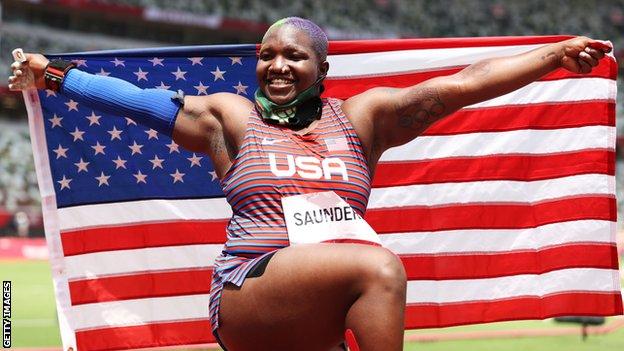
Post-Olympics surgery on an injury means Saunders now has some time on her hands.
As a result, she has been able to make more of the social media videos that attracted plenty of attention during Tokyo 2020 – such as her advice on the food to avoid in the athletes’ dining hall at the Games, and her baffled first experience of using a bidet.
“I’ve been TikToking,” she laughs.
“I like things that are relatable, because that’s the kind of thing I make. So, anything that’s funny, I’m like: ‘OK, I like what you did there. That’s hilarious!'”
But the loneliness the American experienced when dealing with both her mental health and her sexuality means there’s also content to help people who might be struggling in their own lives.
And in an era of Covid, Saunders believes it’s even more important for athletes to show that it’s OK to not be OK.
“After a worldwide pandemic, everyone’s mental health is completely messed up,” she says.
“I don’t care if you’re green, black, purple, Asian, Hispanic, Latina – everyone has dealt with something.
“So I felt like my message really had a chance to connect with so many different people, and it was something that needed to be said.”
Raven Saunders was speaking to the BBC’s LGBT Sport Podcast. You can hear new episodes every Wednesday on BBC Sounds.

